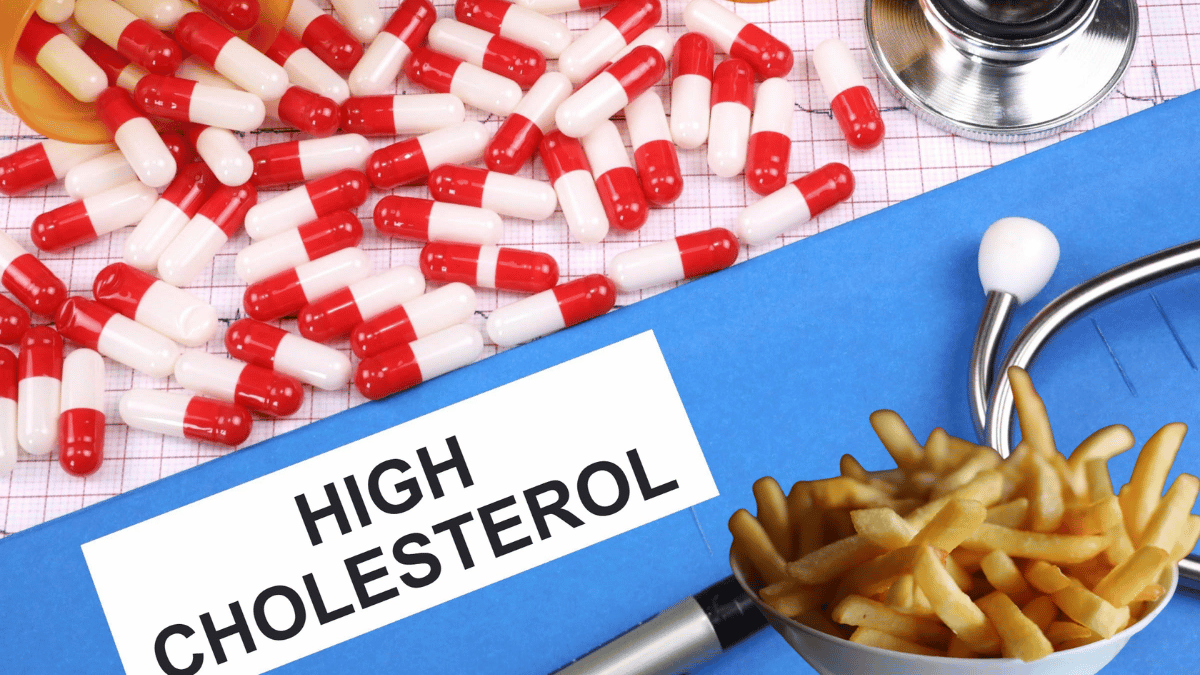You know the feeling when you do everything right – eat clean, go on runs, workout and avoid those greasy ‘drive-ins’. Even after doing all of these, you still see high Cholesterol. Yeah – it does feel like studying all night and still getting a pop quiz wrong. Sometimes, its not a lifestyle problem, its biology doing its thing.
It’s a familiar scene: someone wakes up early, eats a wholesome breakfast, fits in a brisk walk, and watches their portion sizes. They skip greasy takeout, read nutrition labels, and keep a clean diet. Yet at their next annual check-up, the lab report still shows high cholesterol. For many Americans who live health-conscious lives, this can feel like running on the treadmill and going nowhere.
High cholesterol isn’t always a sign of poor lifestyle choices. Sometimes the body simply runs its own show. Genetics, metabolism, hormones, and gut health all play long games here—and no matter how disciplined someone is, cholesterol can stay elevated despite “doing everything right.”
When Good Habits Aren’t the Whole Story
Dr. Sudhir Kumar, a senior neurologist, recently highlighted a patient case that resonates deeply with many: a physically active, non-smoking, mindful eater who still had persistently high cholesterol. Though this example could just as easily describe countless locker-room or office conversations across the U.S., it reveals an important truth: living healthy doesn’t always mean your numbers look perfect.
In cardiology clinics from Boston to San Diego, doctors regularly see patients who run marathons, meal-prep salads, and meditate—but whose LDL cholesterol stays high year after year. The explanation, as Dr. Kumar noted, lies partly in genetics. Some people inherit a slower fat-clearance system. Others have metabolic patterns that keep the liver producing more cholesterol than the body needs. That makes cholesterol management a shared responsibility between lifestyle and medication, not an indictment of effort.
Inside the Body’s Balancing Act
Cholesterol itself isn’t the villain. The body uses it to build cells, create hormones, and synthesize vitamin D. The issue starts when LDL (the “bad” cholesterol) overshadows HDL (the “good” one), leading to gradual plaque buildup along artery walls. Over time, these deposits stiffen arteries, restricting blood flow and stressing the heart.
At that point, no amount of kale salad can single-handedly reverse it. The mix of diet, gut bacteria, stress hormones, and daily rhythms all influence how cholesterol behaves in the bloodstream. Chronic stress can push the liver to release more fats into circulation. Sleep loss, common in wired modern life, impacts how the body processes fats at night. Even gut imbalances—when beneficial bacteria decline—can alter how much cholesterol your body reabsorbs after digestion.
The Power of Timing
Timing matters more than most people realize. Cholesterol levels naturally fluctuate through the day and tend to be lowest in the early morning. That’s one reason morning routines—steady hydration, a fiber-rich breakfast, and early movement—make such a difference.
Many people find that eating dinner earlier and keeping nighttime snacks light helps digestion and reduces next-day lipid fluctuations. The American lifestyle, often shaped by long workdays and late dinners, doesn’t always align with our internal biological clocks. I once swapped my usual late-night protein bars for a cup of warm chamomile tea, and within weeks, I noticed deeper, less restless sleep. Little adjustments like that often stack up quietly over time.
Grounded Habits That Support Cholesterol Balance
- Think of managing cholesterol as tuning a system rather than fighting a number. You can’t see your arteries working, but every food choice, walk, or good night’s sleep contributes to their flexibility and flow.
- Start mornings with oatmeal, chia seeds, or flaxseeds—soluble fiber that binds cholesterol before it re-enters circulation.
- Choose olive oil or avocado oil instead of butter when cooking.
- Add a serving of beans, lentils, or leafy greens each day.
- Aim for at least 30 minutes of moderate activity—brisk walking, cycling, or even a neighborhood stroll—five days a week.
- Hydrate steadily throughout the day; water supports liver and digestive function.
- Keep dinners lighter and finish eating two to three hours before bed.
- Many Americans are also turning toward “slow-living” evening routines popularized across social media—gentle yoga, unhurried dinners, reading before bed—because lower stress levels directly support heart and metabolic health. Less cortisol means less inflammation, and that affects how fats and sugar circulate.
If your cholesterol stays high despite consistent habits, your body may need additional help. Some people inherit familial hypercholesterolemia, a genetic condition that raises cholesterol regardless of diet quality. In these cases, medication like statins may reduce long-term cardiovascular risk while lifestyle measures continue to protect the rest of the system.
Anyone with thyroid disorders, diabetes, or inflammatory conditions should talk with their physician before making major dietary changes. Introducing too much fiber or omega-3 too quickly can cause mild bloating or stomach discomfort. The best approach is incremental—start small, stay steady, let your body adjust. As the old saying goes, “Rome wasn’t built in a day.”
Building a Sustainable Heart Routine
The idea isn’t to chase fast fixes, but to cultivate stable health over time. Cholesterol management, like most aspects of wellness, is about rhythm—regular meals, moderate exercise, calm evenings, quality sleep. Whether it’s a home-cooked meal or a morning jog before work, each act of consistency builds resilience from the inside out.
For many Americans juggling work, school schedules, and packed days, that rhythm can get disrupted. But even in the busiest lives, a few steady anchors—a morning bowl of oats, a lunchtime walk, a full night’s rest—can help keep the heart balanced and the numbers in check.
At the end of the day, lowering cholesterol isn’t about perfection; it’s about partnership—between you, your habits, and your body’s quiet chemistry. Stay patient, keep listening, and build routines that your future self can thank you for.

